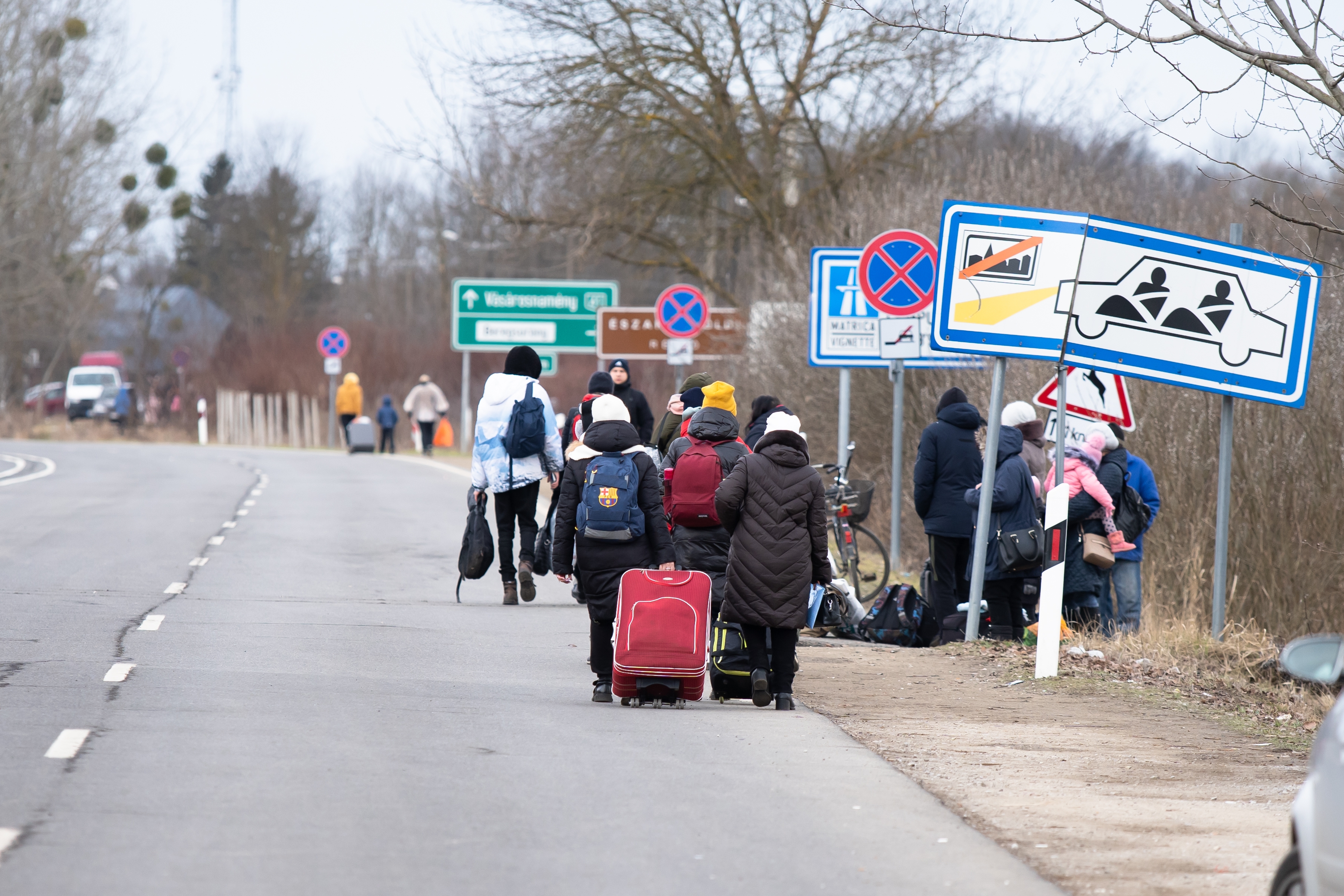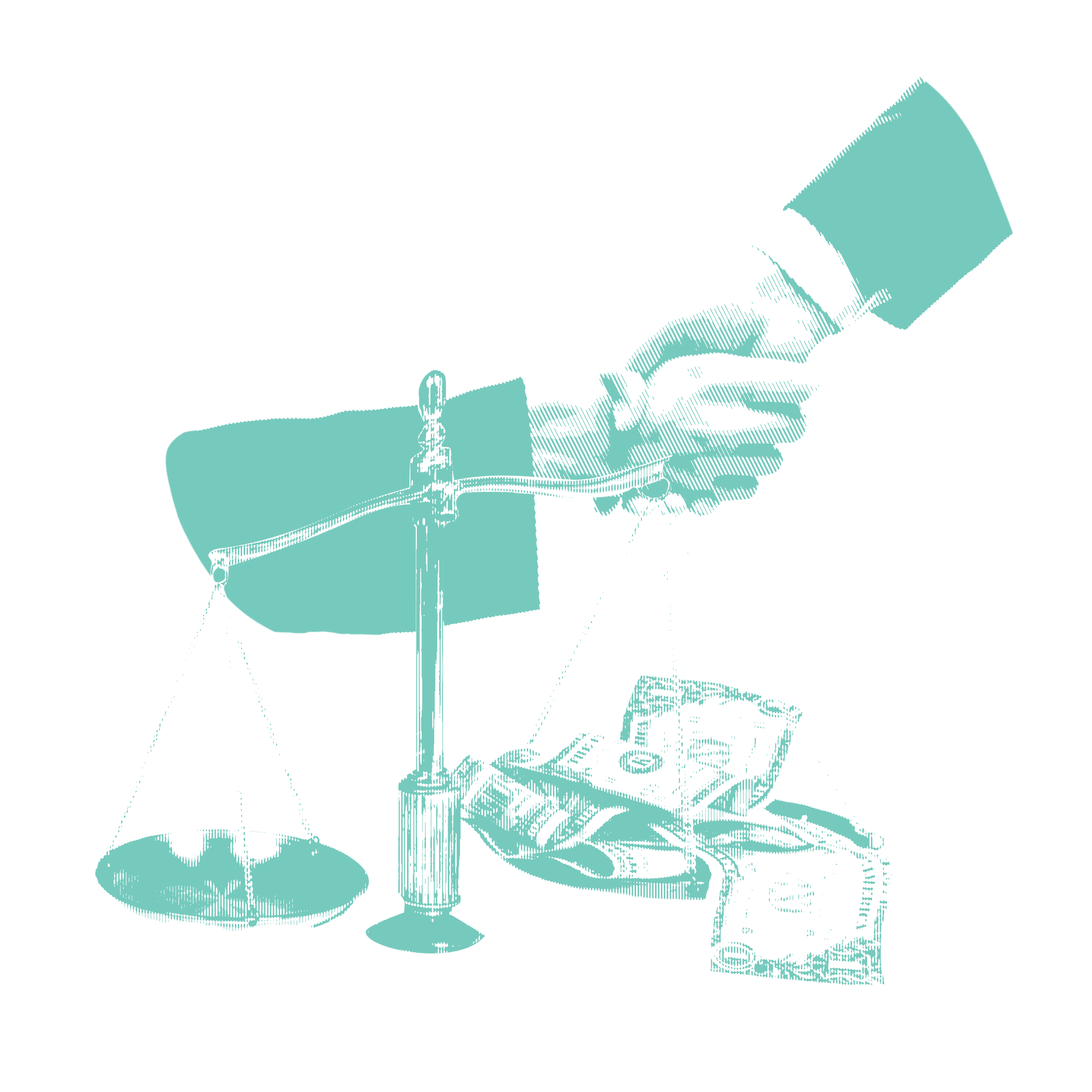One year after Russia’s full-scale invasion of Ukraine, the scars of war are staggering — entire neighborhoods destroyed and hundreds of thousands of homes burned out. With the support of the Pulitzer Center, Nick Schifrin and videographer Eric O’Connor report on the challenges of reconstructing a country, and tackling historic corruption, as it still fights a war.

As a nonprofit journalism organization, we depend on your support to fund coverage of global conflicts. Help us continue funding the hard costs of in-depth coverage of the Ukraine invasion—including travel, hostile environment safety training, and the increased security expenses that arise from reporting in war zones.
Read the Full Transcript
John Yang: Over the last week, we've marked the one year anniversary of the full scale invasion of Ukraine by visiting the front lines, investigating Russian war crimes and examining a new United Ukrainian identity.
Tonight with the help of the Pulitzer Center, we look at the country's efforts to build anew. Nick Schifrin and videographer Eric O'Connor report on the challenges of reconstructing a country and fighting historic corruption as it fights a war.
Nick Schifrin: Across Ukraine the scars are staggering. Entire neighborhoods destroyed. Hundreds of thousands of homes burned out. Ukraine says reconstruction could cost more than a trillion dollars, but in Bucha, a suburb of Kyiv, where the Russians left behind horror and destruction, construction is beginning in earnest.
The town is laying a new foundation to build a new future. 61-year-old Volodymyr Perekhrestenko shows me the Russian armored vehicle door that flew into his house. They're upgrading the insulation, and fixing the walls in a home that he's lived in all his life. And before him, his father and grandfather.
Volodymyr Perekhrestenko, Bucha Resident (through translator): This is our nest. We grew up here, and we wanted to keep living here.
Nick Schifrin: Why have you chosen to rebuild even though the war continues?
Volodymyr Perekhrestenko (through translator): We are hopeful, we are confident that we will win this war, that our lives will be good.
Andrew Negrych, Director of Operations, Ukrainian Global Empowerment Mission: It's important to show people the hope.
Nick Schifrin: Andrew Negrych is the Director of Operations for the Global Empowerment Mission Ukraine. A year ago, he was an entrepreneur about to open a new business in Western Europe. On the day of the invasion, he drove straight back home and joined an organization that delivers aid to people living near the front lines, that is now rebuilding Bucha.
The government pays to fix the roads. But it can't afford to rebuild homes. Most of that cost has been covered by the Howard Buffett Foundation. And the only reason this is possible is that the Russians left. There are cities across hundreds of miles of the front line where no one is even considering rebuilding.
How long do you think it will take for Ukraine to rebuild?
Andrew Negrych: Years, maybe up to 10 years, just to come back, where to the point where we was before the war.
Nick Schifrin: But Ukraine doesn't want to go back to February 2022. It wants to build a new version of itself technologic and economic reforms.
Mykhailo Fedorov, Vice Prime Minister, Ukraine (through translator): We will need to finish these economic transformations to move away from the Soviet Union and to move away from socialism to a full-fledged market economy.
Nick Schifrin: Mykhailo Fedorov is the Vice Prime Minister and the Minister of Digital Transformation. He invited us into his millennial hipster office. Fedorov was born in 1991, the same year that post-Soviet independent Ukraine was born.
Before the full scale invasion, Fedorov led the government's efforts to modernize with technology.
Woman: Ukraine is the first country in the world to equate a digital passport with a physical one.
Nick Schifrin: Especially using an app called Dia that stores all Ukrainians' documents. Today, the app is a wartime tool. How victims of Russian bombing document damage and receive direct government assistance. Fedorov says digitization can also help fight Ukraine's domestic enemy: corruption.
Mykhailo Fedorov (through translator): It's a different approach to governance. And right now everybody is reacting very quickly to any problems we have in the government.
Nick Schifrin: Earlier this month, Ukraine's equivalent of the FBI launched its largest wartime corruption crackdown. He accused the head of Kyiv's tax service of embezzling millions. And they arrested the Deputy Minister of Defense accused of overcharging soldiers for food.
Daria Kaleniuk, Executive Director, Anti-Corruption Action Center: I can't say that we are absolutely eradicated corruption. That is not true. There are still problems. But I'm saying that now, after the war, once we expose problems, there is a reaction.
Nick Schifrin: Daria Kaleniuk is the Executive Director of the Anti-corruption Action Center.
Daria Kaleniuk: We will push away Russians. But if it will have weak institutions, Russians could simply destroy us from inside through their hybrid operations and through corruption.
Nick Schifrin: She says the war has changed Ukraine, and Ukrainians, their lawmakers and international donors will demand a clean government a requirement to join NATO in the European Union.
Daria Kaleniuk: We understand that EU is not just to have a flag. EU means changing the rules where dignity and justice and fairness is in the core of values of the EU. And this is what we are fighting for.
Nick Schifrin: The task ahead will take a generation. But Ukraine says it must start now. Cleaning up the country as wages the war. For PBS News Weekend, I'm Nick Schifrin in Kyiv.
John Yang: You can watch all of Nick's reporting on the one year anniversary of the Russian invasion on our website pbs.org/newshour.











